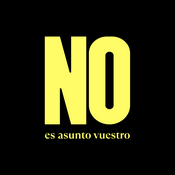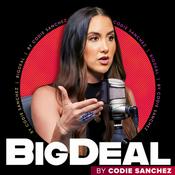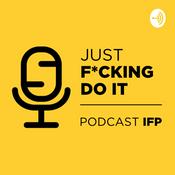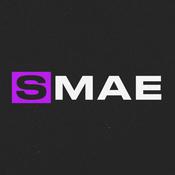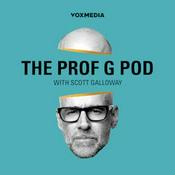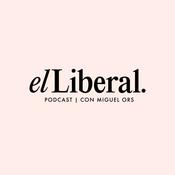78 episodios
An Accidental Landmark? How VanDerStok Could Revive Deference to the Administrative State
12/1/2026 | 11 minChevron deference may be gone—but is the Supreme Court quietly laying the groundwork for something even worse?
In this episode of Unwritten Law, Mark Chenoweth and John Vecchione examine a recent Supreme Court decision that could dramatically reshape administrative law. Drawing on analysis by Will Yeatman, they discuss how the Court’s handling of VanDerStok risks giving agencies a powerful new shield by treating challenges to regulations as “facial” attacks—making them nearly impossible to win.
The conversation dives into why this approach departs from traditional administrative-law principles, how lower courts may use it to avoid meaningful judicial review, and why this decision could become a dangerous tool for future administrations—regardless of political party.
If you care about limits on bureaucratic power, the future of post-Chevron litigation, or the proper role of courts in reviewing agency action, this episode explains why VanDerStok is an issue worth watching closely.The Supreme Court at 250: Chief Justice Roberts, Judicial Independence, and a Court That Takes Too Few Cases
09/1/2026 | 17 minAs the nation approaches the 250th anniversary of the Declaration of Independence, the Chief Justice of the United States reflects on America’s founding principles in his annual Year-End Report on the Federal Judiciary. But what does that report really say about the state of the Supreme Court today?
In this episode of Unwritten Law, NCLA President Mark Chenoweth and Senior Litigation Counsel John Vecchione unpack Chief Justice Roberts’s historical reflections, his views on the Declaration of Independence, and what judicial independence truly means in modern constitutional law. They explore whether the Declaration is merely “ancillary” or something closer to law itself—and why that debate matters.
The discussion also turns to a persistent frustration: the Supreme Court’s shrinking docket. With filings down and opinions limited, Mark and John ask whether the Court is failing to address critical legal questions that affect Americans’ daily lives—and what consequences follow when major precedents are left to “fester” in the lower courts.- In this episode of Unwritten Law, Mark Chenoweth and John Vecchione dig into a major new essay by R.J. Pestritto, Senior Fellow at the Claremont Institute, titled “Government by the Unelected: How It Happened and How It Might Be Tamed.”
https://dc.claremont.org/government-by-the-unelected-how-it-happened-and-how-it-might-be-tamed/
The discussion traces the intellectual and legal origins of the modern administrative state — from Progressive-era theory and Woodrow Wilson, through the New Deal, the rise of Chevron deference, and decades of judicial decisions that insulated federal agencies from democratic control. Mark and John explain how ideas developed in academia slowly reshaped constitutional doctrine, allowing unelected bureaucrats to accumulate legislative, executive, and judicial power.
The episode also examines how recent Supreme Court decisions — including Loper Bright, Corner Post, Jarkesy, and ongoing removal-power cases — may signal a turning point. Together, these cases suggest a rebalancing of constitutional authority: less deference to agencies, greater accountability to the President, and renewed pressure on Congress to legislate rather than delegate.
This conversation offers a clear, accessible explanation of how we got here, why the administrative state became untethered from the Constitution, and what it will take to restore democratic accountability. - Why are the Little Sisters of the Poor still being dragged into court over the Affordable Care Act’s contraception mandate—years after the Supreme Court ruled in their favor?
On this episode of Unwritten Law, Mark Chenoweth and John Vecchione are joined by NCLA Senior Litigation Counsel Andy Morris to discuss a newly filed amicus brief at the U.S. Court of Appeals for the Third Circuit in Pennsylvania & New Jersey v. Trump. The case challenges religious exemptions that protect the Little Sisters, Catholic nuns who object to being forced to provide contraception coverage.
The conversation explores how federal agencies imposed the mandate without clear congressional authorization, why Pennsylvania and New Jersey are suing to eliminate long-standing religious exemptions, and how the case exposes serious constitutional problems—including lack of standing, agency overreach, and violations of the nondelegation doctrine.
At its core, this episode explains why vague laws and unchecked bureaucratic power threaten religious liberty and the separation of powers—and why courts should put an end to litigation that never should have continued.
Unwritten Law examines how unwritten rules, agency actions, and judicial shortcuts quietly reshape the law—often without the consent of the governed. Mass Surveillance by License Plate: The City of Marco Island Fourth Amendment Case
19/12/2025 | 14 minIn this episode of Unwritten Law, Mark Chenoweth and John Vecchione are joined by Andreia Trifoi to discuss NCLA’s constitutional challenge to the City of Marco Island’s use of automatic license plate readers (ALPRs) — a surveillance system that records and stores the movements of every driver entering or leaving the island.
Because Marco Island has only three bridges, residents are photographed and tracked multiple times a day, with their location data retained for years and potentially shared with other agencies or private companies. The hosts explain why this dragnet surveillance goes far beyond ordinary police observation and raises serious Fourth Amendment concerns.
This episode explores how emerging surveillance technology is testing the limits of constitutional privacy — and why courts must confront these questions before mass tracking becomes the norm.
Más podcasts de Economía y empresa
Podcasts a la moda de Economía y empresa
Acerca de Unwritten Law
Unwritten Law is a podcast hosted by Mark Chenoweth and John Vecchione, brought to you by the New Civil Liberties Alliance (NCLA). This show dives deep into the world of unlawful administrative power, exposing how bureaucrats operate outside the bounds of written law through informal guidance, regulatory “dark matter,” and unconstitutional agency overreach.
Sitio web del podcastEscucha Unwritten Law, El Podcast de Marc Vidal y muchos más podcasts de todo el mundo con la aplicación de radio.es
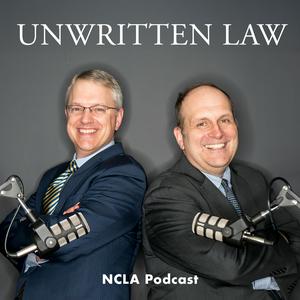
Descarga la app gratuita: radio.es
- Añadir radios y podcasts a favoritos
- Transmisión por Wi-Fi y Bluetooth
- Carplay & Android Auto compatible
- Muchas otras funciones de la app
Descarga la app gratuita: radio.es
- Añadir radios y podcasts a favoritos
- Transmisión por Wi-Fi y Bluetooth
- Carplay & Android Auto compatible
- Muchas otras funciones de la app


Unwritten Law
Escanea el código,
Descarga la app,
Escucha.
Descarga la app,
Escucha.











